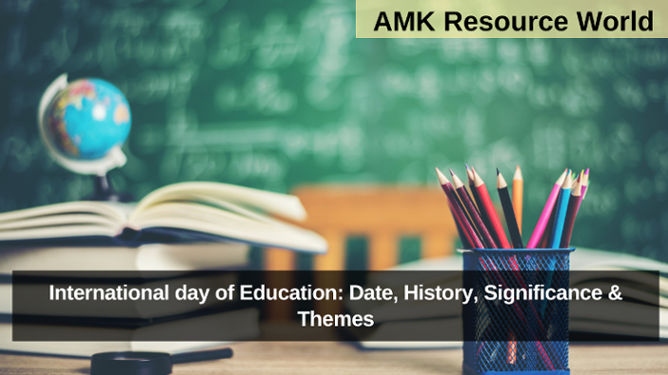Education is the cornerstone of human progress and sustainable development. Recognizing its transformative power, the International Day of Education is celebrated every year on 24th January to highlight the crucial role of education in achieving peace, equality, and prosperity.
Proclaimed by the United Nations General Assembly (UNGA) in 2018, this day emphasizes the global commitment to ensuring inclusive, equitable, and quality education for all.
HISTORY OF THE INTERNATIONAL DAY OF EDUCATION
The UNGA Resolution 73 / 25 established the International Day of Education in 2018. This initiative followed the adoption of the 2030 Agenda for Sustainable Development, particularly Sustainable Development Goal 4 (SDG 4), which seeks to ensure inclusive and equitable quality education and promote lifelong learning opportunities for all.
Education is considered a driving force behind addressing critical global challenges, such as poverty, inequality, and climate change.
The first International Day of Education was celebrated in 2019, marking a significant milestone in global advocacy for education as a universal right and a public good.
SIGNIFICANCE OF THE INTERNATIONAL DAY OF EDUCATION
The International Day of Education underscores the indispensable role of education in building inclusive, sustainable, and resilient societies. Its significance lies in:
Promoting Awareness: It raises global awareness about the barriers to education, including poverty, gender inequality, and conflict.
| Also read: National Girl Child Day: Date, History, Significance & Themes |
Advocating for Change: The day inspires governments, organizations, and communities to prioritize education and implement effective policies.
Celebrating Achievements: It provides a platform to acknowledge progress in improving access to education and empowering marginalized groups.
Strengthening Partnerships: By uniting stakeholders, the day encourages collaboration to address challenges in education systems worldwide.
THEMES OF THE INTERNATIONAL DAY OF EDUCATION
2025: AI and education: Preserving human agency in a world of automation
2024: Learning for lasting peace
2023: To Invest in People, Prioritize Education
2022: Changing Course, Transforming Education
2021: Recover and Revitalize Education for the COVID-19 Generation
2020: Learning for People, Planet, Prosperity, and Peace
2019: Education for Peace and Development
IMPACT OF THE INTERNATIONAL DAY OF EDUCATION
Since its inception, the International Day of Education has catalyzed significant progress in global education:
Enhanced Awareness: It has drawn attention to education disparities, inspiring governments and organizations to take action.
Policy Reforms: Many countries have introduced policies to improve access to education, especially for girls and marginalized groups.
Collaborative Efforts: The day has fostered partnerships between governments, NGOs, and private organizations to address global education challenges.
CONCLUSION
The International Day of Education is a testament to the global community’s commitment to fostering education as a human right and a public good. From its themes addressing peace, innovation, and recovery, the day emphasizes education’s central role in shaping a sustainable future. By investing in equitable and quality education, the world can unlock the potential of individuals and communities, paving the way for a brighter, more inclusive tomorrow






























![Class 10 Science Solution [Chapter 2: Acids, Bases & Salts], READ HERE Class 10 Science Solution [Chapter 2: Acids, Bases & Salts], READ HERE](https://amkresourceinfo.com/wp-content/uploads/2025/04/THUMB-PAGE-2025-04-27T132514.671-100x100.jpg)









